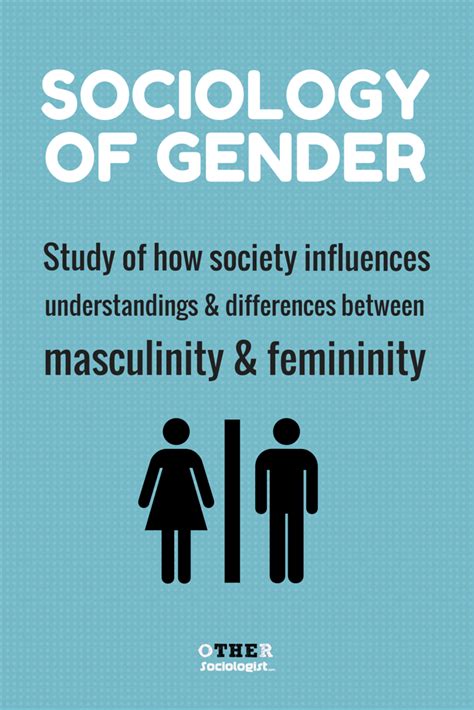Introduction

In an era characterized by profound social transformations, the pursuit of knowledge in sociology and gender studies assumes paramount importance. These interdisciplinary fields delve into the intricate tapestry of human society and relationships, empowering individuals with a critical understanding of the world around them. Whether you aspire to make a meaningful impact on social issues or delve into the depths of human behavior, a major in sociology or gender studies offers a transformative educational journey.
Chapter 1: Exploring the Realm of Sociology
1.1 Defining Sociology
Sociology is the scientific study of society, encompassing its institutions, patterns, and interactions. Sociologists seek to unravel the complex dynamics that shape our lives, from the microcosm of family structures to the macro-level forces that influence global events.
1.2 Key Sociological Concepts
- Socialization: The process by which individuals learn the values, norms, and expectations of their society.
- Social Stratification: The hierarchical arrangement of individuals and groups within a society based on factors such as race, gender, class, and power.
- Social Institutions: Organized systems of norms and behaviors that regulate essential aspects of social life, such as the family, education, and economy.
Chapter 2: Delving into Gender Studies
2.1 The Scope of Gender Studies
Gender studies is an interdisciplinary field that examines the social, cultural, and political construction of gender. It challenges traditional notions of masculinity and femininity, exploring the ways in which gender shapes our experiences and opportunities.
2.2 Key Themes in Gender Studies
- Gender Identity and Expression: The individual’s sense of self as male, female, or non-binary.
- Patriarchy: The system of male dominance and privilege in society.
- Intersectionality: The recognition that multiple identities (e.g., race, gender, class) intersect and shape our experiences.
Chapter 3: Applications of Sociology and Gender Studies
3.1 Career Opportunities
- Sociology: Social researchers, policy analysts, criminologists, social work practitioners
- Gender Studies: Gender policy analysts, diversity trainers, advocates for social justice
3.2 Social Impact
- Addressing Social Inequality: Studying sociology and gender studies can equip individuals with the tools to analyze and address social disparities based on race, gender, and other factors.
- Promoting Social Cohesion: Understanding the dynamics of society can foster empathy, tolerance, and cooperation among diverse groups.
- Fostering Innovation: By examining social trends and patterns, sociologists can generate creative ideas for addressing emerging societal challenges.
Chapter 4: Common Mistakes to Avoid
4.1 Essentialism
Avoid assuming that individuals or groups have inherent or fixed characteristics based on their gender or other social categories.
4.2 Oversimplification
Resist the temptation to reduce complex social phenomena to simple explanations.
4.3 Naiveté
Do not assume that social change is always straightforward or easy to achieve. Recognize the complexities and barriers that exist.
Chapter 5: A Step-by-Step Approach to Success
5.1 Choose Your Major Wisely
Consider your interests and career aspirations when selecting between sociology and gender studies.
5.2 Engage in Research
Actively participate in research projects and internships to gain practical experience and enhance your understanding.
5.3 Network and Seek Mentorship
Connect with faculty, researchers, and professionals in the field to expand your knowledge and gain valuable insights.
5.4 Attend Conferences and Lectures
Stay abreast of the latest research and developments by attending conferences and lectures.
5.5 Seek Diversity
Make a conscious effort to interact with individuals from diverse backgrounds and perspectives to broaden your understanding.
Chapter 6: Beyond the Classroom
6.1 Socially Engaged Research
Conduct research that directly addresses social problems and contributes to positive change.
6.2 Transformative Education
Utilize your knowledge to challenge stereotypes, promote inclusivity, and create a more equitable society.
6.3 Interdisciplinary Collaboration
Work in collaboration with other fields, such as economics, psychology, and public health, to generate innovative solutions to social issues.
Conclusion
A major in sociology or gender studies is not merely an academic pursuit; it is a transformative journey that empowers individuals to understand and influence the social world around them. By embracing the principles of inquiry, critical thinking, and social justice, graduates of these programs become agents of change, working towards a more just, equitable, and sustainable society.
